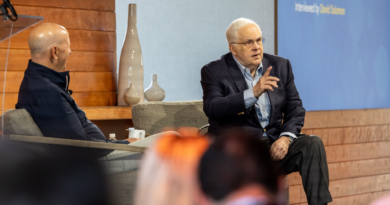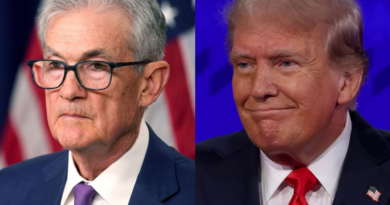Tether blasts report that stablecoin giant is under investigation for money laundering, sanctions violations
As the U.S. government mounted its bruising legal campaign against the crypto industry over the past two years, one company has evaded charges: Tether, the firm behind the eponymous stablecoin pegged to $1 that has become the go-to currency for a wide variety of blockchain transactions.
Tether may no longer be avoiding serious scrutiny, however, as the Wall Street Journal reported on Friday that federal prosecutors in Manhattan are investigating whether Tether violated money laundering and sanctions laws through its use by global criminal networks for drug trafficking, terrorism, and hacking. The company is adamantly denying the allegations.
“It is wildly irresponsible for WSJ to write articles with reckless allegations with such certainty when no authorities have gone on the record to confirm these rumors, and no sources are named,” said Tether in a statement to Fortune. “The article also carelessly glosses over Tether’s well-documented and extensive dealings with law enforcement to crack down on bad actors seeking to misuse tether and other cryptocurrencies.”
With a market cap of $120 billion, Tether’s dollar-pegged stablecoin serves an integral role as the settlement currency for crypto trading and a hedge against volatility in many countries whose populations do not have access to dollars. Its hazy relationship with regulation, though, has led to ongoing questions about how exactly the stablecoin is backed, and about the the use of Tether for criminal activities.
Tether has faced previous probes, including by the Office of the New York Attorney General, which hit Tether and its parent company, iFinex, with an $18.5 million fine in 2021 for illegally operating in the state, as well as the Commodity Futures Trading Commission, which ordered Tether to pay a $41 millionpenalty in 2021 for engaging in illegal transactions. The latest probe is the reported expansion of a Department of Justice investigation into whether Tether’s backers committed bank fraud.
A spokesperson for the U.S. Attorney for the Southern District of New York declined to comment.
Tether’s rise
Founded in 2014 by Bitcoin enthusiasts, including the Mighty Duck actor Brock Pierce, Tether was one of the earliest iterations of a stablecoin—a type of cryptocurrency that is pegged to an underlying asset, such as a fiat currency or commodities such as gold or oil. The project was soon acquired by Bitfinex, one of the leading crypto exchanges.
While Tether maintained a respectable volume, its usage rose during the bull market of 2021, when the explosion of trading fueled the need for a crypto-native settlement currency on exchanges that were less volatile than Bitcoin or Ethereum. While Tether faced competition from rivals including USDC, a stablecoin project backed by Circle and Coinbase, its offshore operations also made it an appealing option for people in countries outside the scope of the U.S., including in economies without access to the dollar, such as Argentina and Lebanon.
Despite Tether’s astronomic growth, the firm also faced continued questions about its management, including whether the stablecoin was actually fully backed by dollars. An investigation by Bloomberg in 2021 revealed that a good portion of Tether’s reserves were held in risky assets such as commercial paper from Chinese companies. The company has insisted it no longer engages in this practice. Still, Tether has yet to undergo a traditional audit due to what it says is difficulty in persuading major accounting firms to take it on as a client.
Blockchain analytics firms have also tied Tether to global criminal networks, especially with a version of the stablecoin issued on the Tron blockchain. A report published earlier this year by TRM Labs found that Tron hosted 45% of all illicit volume in 2023, with more than half of Tether’s current market cap hosted on Tron. Tether has touted initiatives to combat criminal usage and freeze addresses associated with illicit behavior. In September, Tether and Tron announced a new partnership with TRM Labs called the T3 Financial Crime Unit.
Ongoing scrunity
The open questions whirling around Tether have not hindered its growth, especially after its rival USDC briefly lost its $1 peg on secondary markets during the banking crisis of March 2023. Even with the launch of new stablecoins from companies such as PayPal, Tether continues to dominate the sector. The company also has the support of Howard Lutnick, the CEO of the financial services giant Cantor Fitzgerald, which manages some of Tether’s backing assets. Lutnick is a major economic advisor to former president Donald Trump.
The newly reported probe into Tether’s business, however, raises the risk of disruption for both the company and the crypto sector as a whole, similar to what occurred following the collapse of the fraudulent FTX exchange in November 2022. Tether is arguably more integral to the crypto industry than FTX as its stablecoin underpins the global crypto economy.
Potential charges could echo the DOJ and Treasury Department’s case against Binance, which focused on money laundering and sanctions violations by the exchange thanks to the activity of terrorist and drug trafficking networks. Tether has been linked to groups including Hamas and Russian arms dealers have been linked.
“There is no indication that Tether is under investigation,” Tether CEO Paolo Ardoino posted on X after the news broke. “WSJ is regurgitating old noise. Full stop.”




